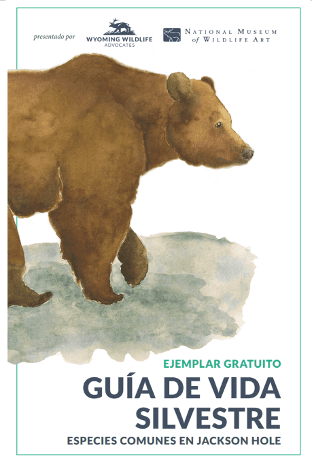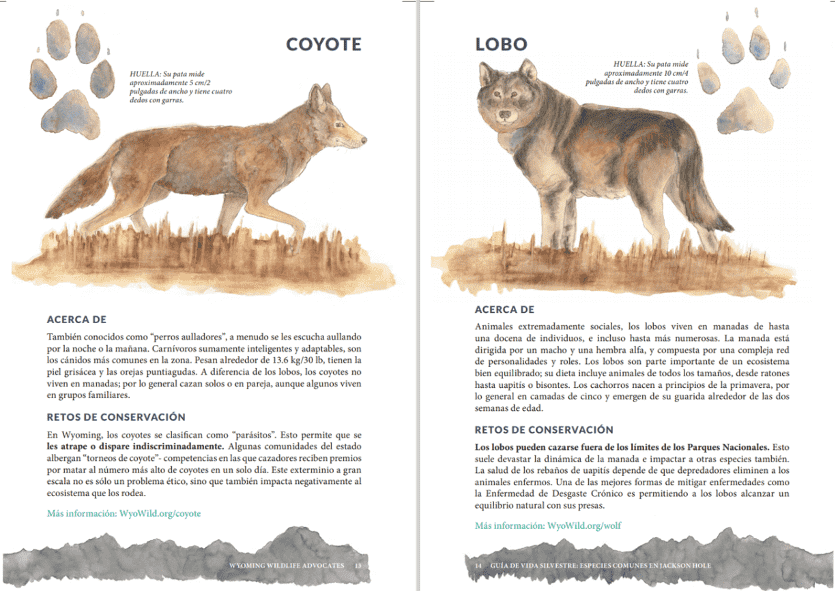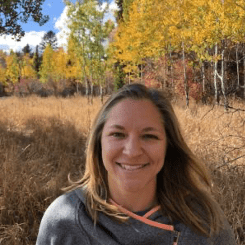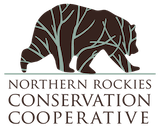Author: Kristin Combs
Organization: Wyoming Wildlife Advocates
Title: Wildlife for All
In general, the historical scope of wildlife management in North America has not included people of color, Indigenous tribal members, and other racially and ethnically diverse community members. Entire segments of the population have been omitted from conversations and having a seat at the table when it comes to the conservation and preservation of wildlife. Had a broader constituency been engaged throughout the process of establishment of wildlife policy and practices, we may not have encountered the near extinction of so many species and could be successfully coexisting with wildlife, especially our large carnivores.  Changes in wildlife management to include Indigenous tribes and local community members in places like Mongolia, Africa, and Canada has resulted in improved outcomes for coexistence with snow leopards, lions, and grizzly bears. As we move further into the sixth mass extinction and increasing effects from climate change, we will need as many diverse voices and ideas as possible to develop solutions to preserve our wild neighbors. Ensuring that all people have access to information that will help them better understand these issues is key to coexisting with wildlife in our corner of the world. What must follow are efforts to ensure a diverse range of constituents are included in decision making processes in both social and governmental contexts.
Changes in wildlife management to include Indigenous tribes and local community members in places like Mongolia, Africa, and Canada has resulted in improved outcomes for coexistence with snow leopards, lions, and grizzly bears. As we move further into the sixth mass extinction and increasing effects from climate change, we will need as many diverse voices and ideas as possible to develop solutions to preserve our wild neighbors. Ensuring that all people have access to information that will help them better understand these issues is key to coexisting with wildlife in our corner of the world. What must follow are efforts to ensure a diverse range of constituents are included in decision making processes in both social and governmental contexts.
The Hispanic community comprises at least 15% of Teton County, Wyoming residents. There is a lack of outreach to this section of the community and involvement in decisions when it comes to wildlife and environmental concerns. After conversations with local community members and working in a weeklong program with four students with Spanish-speaking relatives, it became evident that many in this sector of the community have little knowledge or access to information regarding wildlife or environmental issues in the Greater Yellowstone Ecosystem
Our mission at Wyoming Wildlife Advocates is to provide access to information about wildlife conservation challenges in order to mobilize residents to advocate for wildlife. Our complimentary booklet, Wildlife Guide: Common Species in Jackson Hole, has been distributed throughout Teton County for the past three years and has really helped to meet this goal. Each year, we have increased the number of guides printed as requests for them continues to rise therefore demonstrating that people find them both visually appealing, useful, and informational.
By making this resource available in Spanish, we can increase the efficacy of the guide’s educational power by making it accessible to all residents. As residents of Teton County and the Greater Yellowstone Ecosystem (GYE), everyone should have the opportunity to learn about environmental issues and how to protect this incredible place.  Coexistence with our wildlife requires that people are informed about threats to the survival of local species and are ready to take action to help protect them. Communication that reaches the broadest swath of demographics in a format people can easily digest is vital to reaching out to different sectors of society. As a community, we have a duty to ensure that all have access to information about how to coexist with wildlife. The Spanish version of our wildlife guides will provide a launching point for this discussion with Spanish-speaking residents and visitors. This effort will help to ensure that any who are willing and have an interest in being engaged with wildlife conservation have an opportunity to do so.
Coexistence with our wildlife requires that people are informed about threats to the survival of local species and are ready to take action to help protect them. Communication that reaches the broadest swath of demographics in a format people can easily digest is vital to reaching out to different sectors of society. As a community, we have a duty to ensure that all have access to information about how to coexist with wildlife. The Spanish version of our wildlife guides will provide a launching point for this discussion with Spanish-speaking residents and visitors. This effort will help to ensure that any who are willing and have an interest in being engaged with wildlife conservation have an opportunity to do so.
Image credits: Kristin Combs
 Kristin Combs is the Executive Director for Wyoming Wildlife Advocates. She holds a bachelor’s degree in Environmental Science, a master’s degree in Education, and a master’s degree in Science Education. She has been studying and teaching others about biology and wildlife issues for over 15 years and directly advocating for Wyoming’s wildlife for 5 years. A deep appreciation for the West, wild places, and fellow creatures is why she has dedicated her life to helping protect them.
Kristin Combs is the Executive Director for Wyoming Wildlife Advocates. She holds a bachelor’s degree in Environmental Science, a master’s degree in Education, and a master’s degree in Science Education. She has been studying and teaching others about biology and wildlife issues for over 15 years and directly advocating for Wyoming’s wildlife for 5 years. A deep appreciation for the West, wild places, and fellow creatures is why she has dedicated her life to helping protect them.
